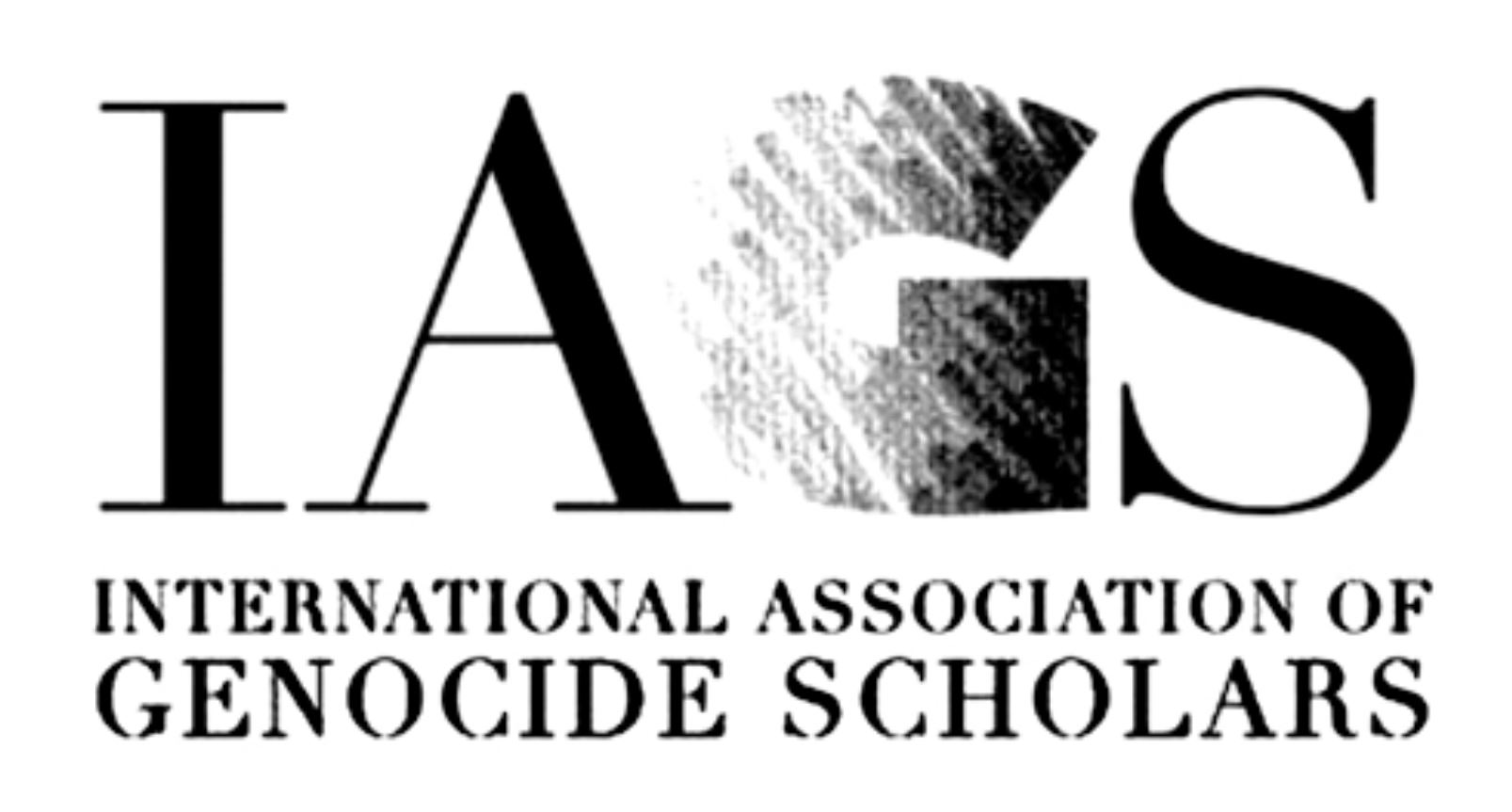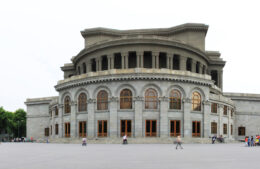IAGS Calls upon the international community to protect Nagorno-Karabakh’s right to self-determination: International Association of Genocide Scholars (IAGS) issues Resolution on Nagorno-Karabakh
- (0)

The International Association of Genocide Scholars (IAGS) proposed a resolution on Nagorno-Karabakh (Artsakh), which was passed on September 2, 2024. The resolution condemns Azerbaijan’s violations of human rights, war crimes, genocide and crimes against humanity perpetrated against the Armenian population of Artsakh and affirms their right to return with international guarantees of security.
The full text of the IAGS resolution follows:
Recognizing the killing and other violence, including torture, against Armenian civilians;
Recognizing the detention of political leaders of Nagorno-Karabakh;
Acknowledging the expulsion under threat of mass violence of the remaining 100,000 ethnic Armenians from Nagorno-Karabakh in September 2023;
Acknowledging the history of anti-Armenian hate speech and expressions of genocidal intent from Azerbaijani media, political and military leadership, religious leaders and other sources;
Recognizing that Azerbaijan has taken ethnic Armenian soldiers and civilians prisoner, some of whose whereabouts remain unknown;
Recognizing the destruction of Armenian cultural heritage in Nagorno-Karabakh by Azerbaijan;
Acknowledging the multiple representative and referendum votes from 1988 to 1992 to join Armenian Republic or become an independent state, which have never been respected internationally;
Recognizing that the closure by Azerbaijan of the Lachin Corridor from December 2022 to September 2023 prevented essential goods including food, fuel and medicine from reaching the residents of Nagorno-Karabakh, and prevented residents from accessing external medical treatment and separated families including children from parents, creating a humanitarian crisis resulting in malnutrition, death from starvation, illness and psychological harm;
Acknowledging the International Court of Justice’s preliminary measures order of February 2023 that declared Azerbaijan’s blockade of Nagorno-Karabakh including the closure of the Lachin Corridor ‘may have a serious deterrent impact on the health and lives of individuals’ and ordered Azerbaijan to ‘take all measures at its disposal to ensure unimpeded movement of persons, vehicles and cargo along the Lachin Corridor in both directions’;
Acknowledging the International Court of Justice’s preliminary measures order of February 2023 that ordered Azerbaijan to cease incitement and promotion of racial hatred and discrimination targeted at national or ethnic Armenians, and to prevent and punish destruction of Armenian cultural heritage;
Acknowledging the International Court of Justice’s preliminary measures order of November 2023 that ordered Azerbaijan, inter alia, to ensure the safe, unimpeded and expeditious return of those who wish to return to Nagorno-Karabakh, and the protection of persons in Nagorno- Karabakh;
Acknowledging Azerbaijan’s lack of compliance with the International Court of Justice’s preliminary measures orders of February (supported by a follow-up statement of 6 July 2023) and November 2023;
Recognizing that Azerbaijan bombed Nagorno-Karabakh including civilian areas on 19-20 September 2023, resulting in the deaths of over 200 people and over 400 injured including civilians, and the above-referenced forced displacement of over 100,000 people from Nagorno-Karabakh into Armenia;
Recognizing international concern over a possible Azerbaijan invasion of Armenia and that Azerbaijan’s leadership continues to threaten Armenia with possible future military attacks;
Recognizing the statements of legal experts, current U.N. officials, former U.N. officials, non-governmental organizations and scholars of the risk of genocide and the declaration of the blockade of Nagorno-Karabakh as genocide;
Recognizing that Azerbaijan is a state party to the 1948 United Nations Convention on the Prevention and Punishment of the Crime of Genocide;
Recognizing that Azerbaijan is a state party to the four Geneva Conventions of 1949, the 1954 Hague Convention for the Protection of Cultural Property, and the 2006 Convention for the Protection of all Persons from Enforced Disappearance;
Recognizing that Azerbaijan is a state party to the 1984 Convention Against Torture, the 1965 Convention on the Elimination of all forms of Racial Discrimination, and a number of other international human rights law treaties;
Recognizing that in November 2023 Armenia deposited its ratification of the 2002 Rome Statute of the International Criminal Court, which came into effect 1 February 2024, including a declaration on the acceptance of retroactive application of the ICC’s jurisdiction to 10 May 2021;
Therefore, the International Association of Genocide Scholars:
- Declares the blockade of Nagorno-Karabakh from December 2022 to September 2023, including the closure of the Lachin Corridor, was characteristic of actions considered imposing conditions of life designed to bring about the physical destruction of the ethnic Armenians in the territory and caused serious mental and bodily harm to the Armenians in the territory, which are recognized as genocidal crimes under the United Nations Convention on the Prevention and Punishment of the Crime of Genocide;
- Declares the forced removal of ethnic Armenians in September and October 2023 through siege and bombing as ethnic cleansing and the crime against humanity of deportation or forcible transfer of population (forced displacement);
- Declares the bombing of civilian areas to be a violation of international humanitarian law;
- Declares the torture and killing of ethnic Armenian prisoners of war and civilians to be a violation of international humanitarian law;
- Calls upon the government of Azerbaijan to free all ethnic Armenians in Azerbaijani detention in unlawful circumstances;
- Urges Azerbaijan to comply with orders and judgments of the International Court of Justice, and other obligations of international law including international human rights law and international humanitarian law;
- Calls upon the government of Azerbaijan to prevent future violations of human rights and international law being perpetrated against the Armenians of the South Caucasus;
- Calls upon Azerbaijan to prevent further displacement of Armenians from their homeland by respecting the Republic of Armenia’s territorial sovereignty;
- Call upon Azerbaijan to respect, protect and prevent the destruction of any Armenian cultural property in Nagorno-Karabakh;
- Calls upon the international community to protect Nagorno-Karabakh’s right to self- determination;
- Calls upon the international community to take appropriate measures to guarantee the right to return and security of Armenians forcibly displaced from Nagorno-Karabakh, as confirmed by the International Court of Justice in its 17 November 2023 Provisional Measures Order;
- Calls upon the international community, including national governments and international organizations, to recognize the atrocities perpetrated against the ethnic Armenians of Nagorno-Karabakh as constituting gross violations of human rights, war crimes, genocide and crimes against humanity, as applicable, and to take appropriate measures in response to prevent further violations and crimes;
- Recommends appropriate transitional justice measures including but not limited to: sanctions against those who are responsible; referral of the situation to the International Criminal Court to ensure justice for victims; commencement of proceedings against Azerbaijan in the International Court of Justice under the Convention on the Prevention and Punishment of the Crime of Genocide and the Convention Against Torture; the creation of an international fact-finding mission to gather evidence of human rights abuses and crimes; the creation of a missing persons search process; and the use by state courts of universal jurisdiction to commence proceedings against individuals involved in the crimes;
- Calls upon the Prosecutor of the International Criminal Court to use Armenian ratification of the Rome Statute to investigate and prosecute the transboundary crime against humanity of deportation from Nagorno-Karabakh into Armenian territory.
- Calls upon Azerbaijan to remove its soldiers from the territory of the Armenian Republic and to respect the right of self-determination of the Armenians of Nagorno-Karabakh as guaranteed under the United Nations Charter (Chapter I, Article 2).


















